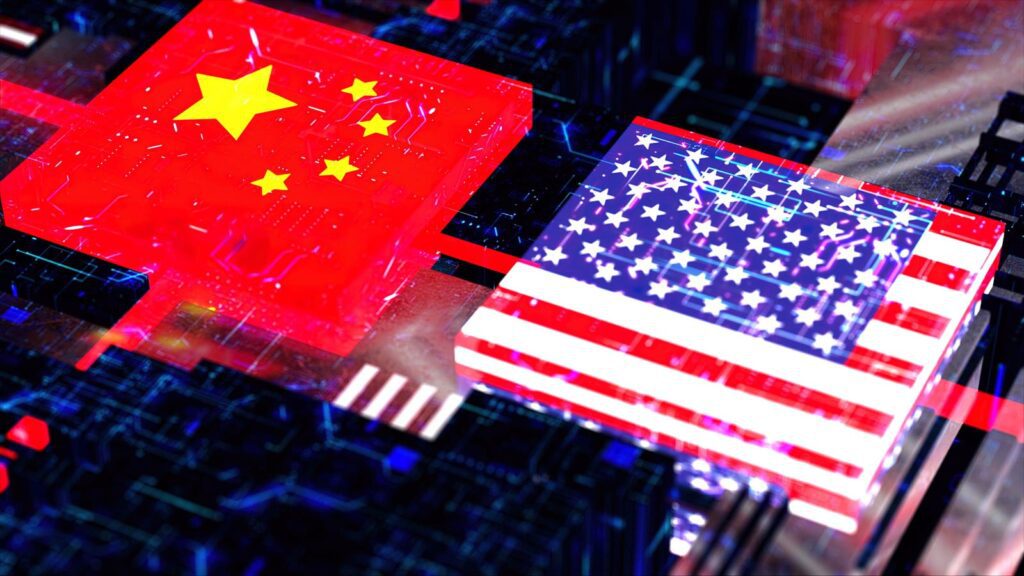The AI Race: Who Will Dominate the Future?
AI is more than a buzzword—it’s the force fundamentally reshaping our world. From business innovations to defense strategies, artificial intelligence is no longer just a tool; it’s a crucial player in global power dynamics. As investments in AI soar, experts estimate the market will reach a staggering $1.81 trillion by 2030. But who holds the key to success? The answer lies in controlling the best data and computing platforms.
A Bold Vision for America
As the new Trump administration gears up for its next chapter, a tech-savvy vision is on the table: leveraging AI as a pillar of American competitiveness. With none other than Elon Musk stepping into an advisory role, the administration is signaling its intent to lead in tech innovation. This collaboration points toward a strong commitment to ensuring the U.S. remains a dominant force in technology, economy, and defense.
The Global Showdown: The U.S. vs. China
When it comes to the AI race, two heavyweight contenders have emerged: China and the United States. China is leaving no stone unturned, having invested over $6.12 billion in AI data centers in recent years. With ambitions to become a military powerhouse and an AI leader, it’s clear that China is betting on artificial intelligence for economic growth and defense capabilities.
Contrarily, the U.S. refuses to fall behind. American tech firms are pouring over $30 billion annually into AI-related data center development, signaling a striking shift in investment focus. As global data center spending is poised to hit $250 billion a year, the U.S. sees AI compute as crucial to maintaining its business and economic dominance.
The Energy Dilemma
However, there’s a dark cloud overshadowing this rapid growth. The electricity demand from sprawling data centers is skyrocketing, turning them into monstrous consumers of power. A single data center can consume as much electricity as a small city, creating urgent challenges for utilities and governments. Finding a balance of renewable and conventional energy sources has never been more critical to support this burgeoning AI landscape.
A New Contender: Saudi Arabia
Meanwhile, Saudi Arabia is emerging as a formidable player in the AI race. Through significant investments like Oracle’s $1.5 billion and AWS’s $5.3 billion, the Kingdom is establishing itself as a digital hub connecting Asia, Europe, and Africa. With a vision aligned with the ambitious Project Transcendence—aiming to create a $100 billion AI infrastructure—Saudi Arabia is on a path to reshape its economy and reduce oil dependency.
Innovating Through Neuromorphic Computing
In response to the energy demands tied to AI, innovative solutions are emerging. Companies like Innatera are championing neuromorphic computing, modeled after the human brain’s structure for efficient information processing. Their flagship chip, the Spiking Neural Processor (SNP) T1, stands out by operating with minimal energy consumption—promising a path forward for energy-efficient Smart Grid systems amidst growing data center demands.
Why AI Compute Leadership Matters
Securing leadership in AI compute goes beyond capital; it’s about establishing geopolitical power. Countries that lead in AI computing are likely to dominate sectors from automated vehicles to cybersecurity. In essence, compute leadership can provide control over information flow and significant influence in shaping global AI policy.
As we move forward, the race for AI compute leadership intensifies, making it vital for both public and private sectors to collaborate. By investing in sustainable energy solutions and innovative technologies like neuromorphic computing, stakeholders can aim to maintain competitiveness on the world stage.
The time is ripe for action. Those who position themselves within the AI advancements will not just be players; they will help shape the next tech revolution. The future is clear—those who dive in now will thrive in a world interwoven with data and power.
The AI Buzz Hub team is excited to see where these breakthroughs take us. Want to stay in the loop on all things AI? Subscribe to our newsletter or share this article with your fellow enthusiasts.




